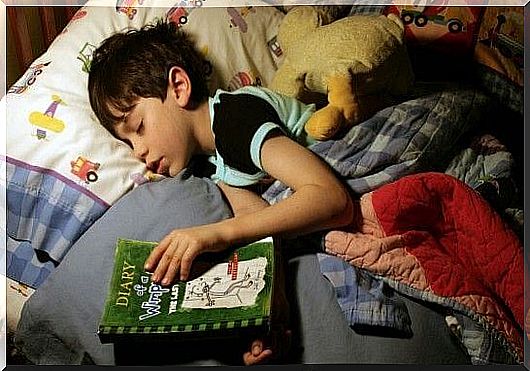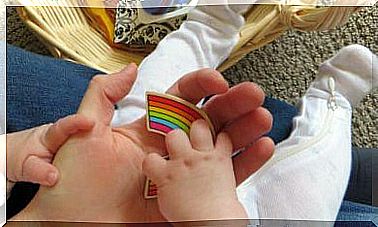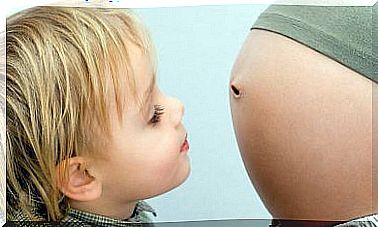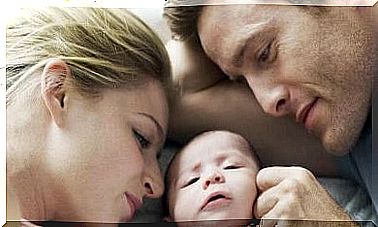The Phases Of Infant Sleep

The phases of children’s sleep contribute to the regulation and repair of the body, in this way, it is possible to control energy and body temperature. Therefore, it is preferable for the baby to go at his own pace.
Our baby’s rest will be favored if we respect these phases of infant sleep. If we try to change them, we will not only have to make more effort, but we can harm their development. It is during sleep that memories are fixed and what has been learned is assimilated. The organism is strengthened and the child matures mentally and physically.
To eat frequently
The two phases of childhood sleep are different from the five in adults. The reason is that the child’s body needs to feed frequently, hence it wakes up easily at night to eat and continue sleeping. Sometimes he opens his eyes looking for Mommy’s warmth.
The phases of childhood sleep
The variation of the phases of children’s sleep will depend on age. There are shallow sleep cycles and others are deeper.
- In REM sleep the brain is active. It is a short period in which there are rapid eye movements. The baby is in a kind of semi-alert and it is very easy for him to wake up. It usually lasts for about 90 minutes.
- On the opposite side is NREM sleep. It is a deep, calm and slightly longer phase. During the night, the two alternate, so the child can wake up and sleep soundly after a few minutes. This will complete the 8-hour night’s rest.
These phases also depend on the child’s health and development. Teeth eruption, for example, can frequently disrupt rest.

According to age
As the baby grows, REM sleep phases decrease. At two months, he can sleep peacefully for periods of an hour and eat when he is hungry. Thus, it does not distinguish day from night.
- Starting at 4 months, you can sleep for periods of three or four hours at a time. At six months a period begins in which you will sleep longer, but it will not happen every night.
- It will be at 7 months when I manage to acquire other phases of sleep to make a total of four. The last one is that of deep sleep. From 8 to 24 months he will prefer to sleep more, calmly and deeply. Nightmares or noises will wake you up, not hunger. The urge to talk or crawl can also drive away sleep.
- Around the year the baby begins to wake up for short periods of time. These micro-awakenings are considered a response to the state of alert in which the human being is permanently maintained. They can last up to four years and are considered normal. They often include nighttime fears, nightmares, or noise.
- Between 3 and 6 years the baby’s sleep will behave like that of an adult. He will control the schedules and will not wake up unless fear invades him or he is sleepwalking. In these cases, they tend to ask their parents for more company. Reading a story or a song performed by mom or dad will be an excellent option.
Respect the sleep pattern in children
To prevent these intervals from becoming a habit, they must not be interrupted. It will be a titanic effort to try to make the child fall asleep when it does not correspond to him. Doing it at your own pace will make things easier and prevent tantrums, hence changing children’s sleep patterns, rather than healthy, is very harmful.
If the baby does not sleep well, he will suffer from physical and mental problems in the future. It is proven the importance in the little ones that they sleep well and enough.

An appropriate environment
It is necessary to create the appropriate environment so that the child is comfortable and sleeps at his own pace. Be aware of when he wakes up and when he wants to sleep to prevent the baby from seeking his own routine .
The phases of infant sleep must be respected. Each one has its reason for being and is adjusted to the requirements of the baby’s body. Rest helps to repair and also regulate the child’s body. In addition, it allows you to organize knowledge and memories. Not only does it feed upon waking, but it learns and matures when it sleeps.










